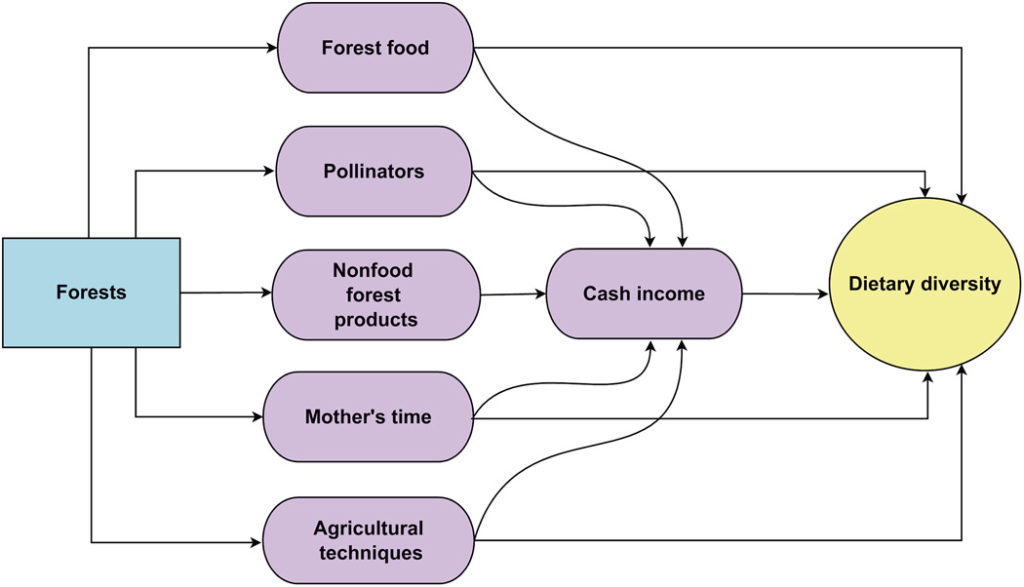
It’s well-known that living near green spaces is beneficial to children. From increased empathy to cognitive development, researchers have found that nature is important in human development. Added to the list of benefits, a new study has found increased nutritional benefits in children that live near forests.
“Our results indicate that greater exposure to forests, on average, has positive effects on children’s dietary diversity in developing countries.”
In particular, “Impacts of forests on children’s diet in rural areas across 27 developing countries” published in the August 15, 2018 issue of Science Advances looked at micronutrient deficiency in 43,000 households.
Our results also indicate that forests could help reduce vitamin A and iron deficiencies. Our study establishes the causal relationship between forests and diet and thus strengthens the evidence for integrating forest conservation and management into nutrition interventions.[note]http://advances.sciencemag.org/content/4/8/eaat2853?rss=1[/note]
The study focused mostly on countries in Africa, Asia, and South America. This large-scale
study included over 43,000 families.
How Do Forests Improve Children’s Nutrition?
Forests aid in increased micronutrient consumption by increasing diet diversity. Animals, plants, and fungi are consumed regularly by families that live in close proximity to forests is developing countries. Researchers cite:
For example, in rural forest-dependent households in Cameroon, forest foods contribute 93% of women’s vitamin A intake, 100% for sodium, 85% for iron, 88% for zinc, and 89% for calcium.[note]http://advances.sciencemag.org/content/4/8/eaat2853?rss=1[/note]
In addition, access to forest products increases income and decreases food-related work time, such as gathering wood to cook, for families. With deforestation, families have to go farther to gather fuel and forage.

Very few studies ever establish a causal relationship. Usually, correlations or associations are discovered, which is not the same as causation although it is often assumed to be so. This study did establish a causal relationship “between forests and diet and thus strengthens the evidence for integrating forest conservation and management into nutrition interventions”.
Living near forests improves health nutritionally, mentally, and physically! Previous studies have found a strong correlation between living within 1 km of forests and a healthy amygdala, the part of the brain where fear, anxiety, and stress reside. Researchers did not find the same results from living near urban parks or green spaces.[note]https://www.weforum.org/agenda/2017/10/living-near-forests-is-good-for-your-brain/[/note]
Humans need forests. Deforestation impacts not only the climate but the health and well-being of people as well.
Leave a Reply